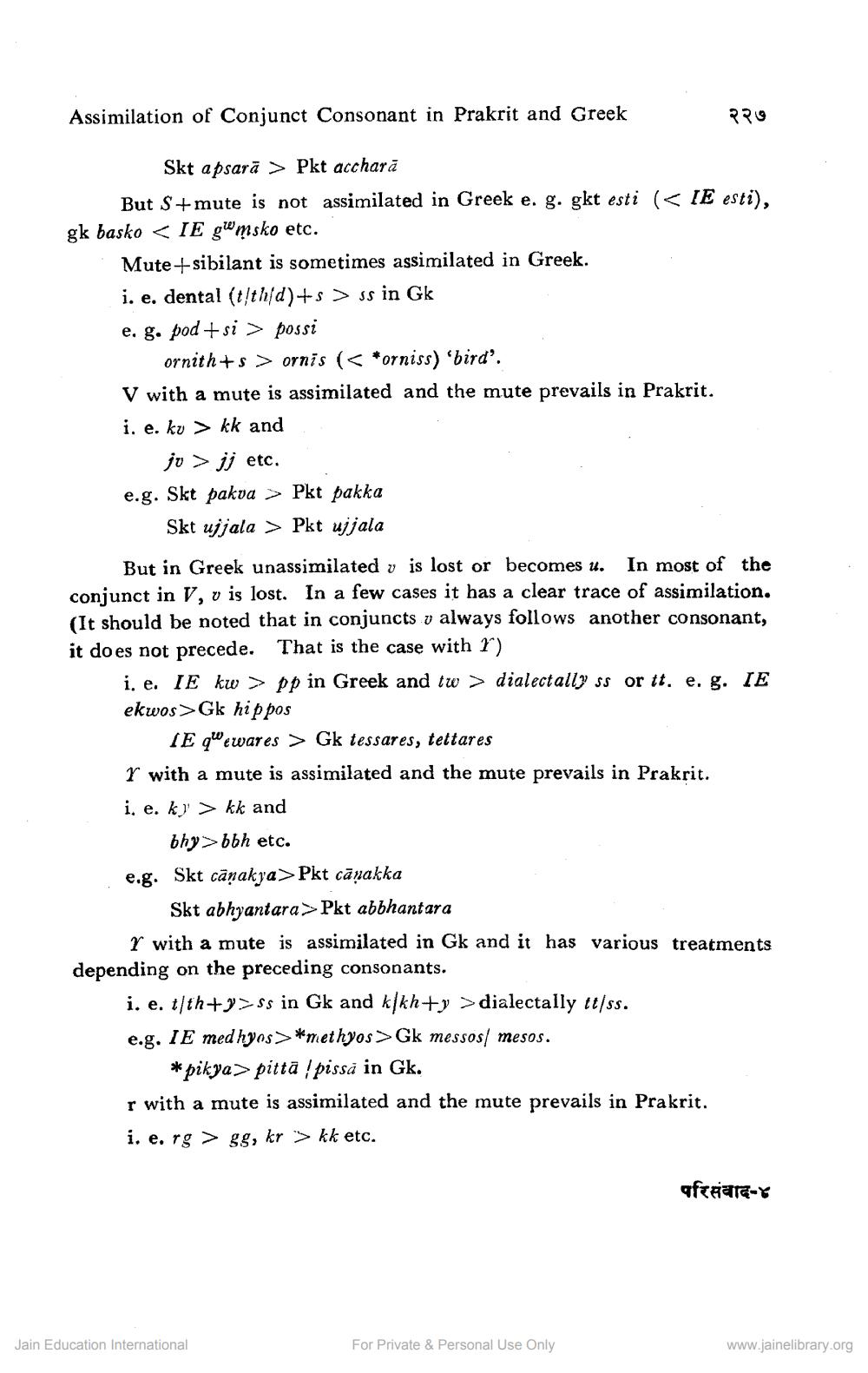Book Title: Assimilation Of Conjuct Consonants In Prakrit And Greek Author(s): Haripriya Mishra Publisher: Z_Jain_Vidya_evam_Prakrit_014026_HR.pdf View full book textPage 3
________________ Assimilation of Conjunct Consonant in Prakrit and Greek Skt apsara > Pkt acchara But S+mute is not assimilated in Greek e. g. gkt esti (< IE esti), gk basko IE gwmsko etc. Mute+sibilant is sometimes assimilated in Greek. i. e. dental (t/th/d)+s> ss in Gk e. g. pod + si possi ornith+s ornis (< *orniss) 'bird'. V with a mute is assimilated and the mute prevails in Prakrit. i. e. kukk and jov > jj etc. e.g. Skt pakva > Pkt pakka Skt ujjala Pkt ujjala But in Greek unassimilated v is lost or becomes u. In most of the conjunct in V, v is lost. In a few cases it has a clear trace of assimilation. (It should be noted that in conjuncts o always follows another consonant, it does not precede. That is the case with 1) २२७ i. e. IE kw> pp in Greek and tw> dialectally ss or tt. e. g. IE ekwos>Gk hippos IE qewares > Gk tessares, tettares r with a mute is assimilated and the mute prevails in Prakrit. i. e. kykk and bhybbh etc. e.g. Skt canakya> Pkt cāṇakka Skt abhyantara Pkt abbhantara r with a mute is assimilated in Gk and it has various treatments depending on the preceding consonants. i. e. t/th>ss in Gk and k/kh+y > dialectally tt/ss. e.g. IE med hyos>*methyos > Gk messos mesos. *pikya> pitta pissä in Gk. r with a mute is assimilated and the mute prevails in Prakrit. i. e. rggg, kr> kk etc. Jain Education International For Private & Personal Use Only परिसंवाद-४ www.jainelibrary.orgPage Navigation
1 2 3 4
